Born: 1 February 1923 Died: 17 October 2008 (Jewish General Hospital, Montreal) Interred: Victorian Cemetery Association, de la savane
WEIDER, BEN
February 1, 1923 – October 17, 2008
Ben Weider, sports leader, scholar, businessman, and philanthropist, known and honored worldwide for his pioneering work promoting and organizing the sport of bodybuilding and groundbreaking work as a self-taught but hugely influential and popular Napoleonic historian and author, died suddenly Friday in Montreal, city of his birth and lifelong home. He was 85 years old.
Beloved husband of Huguette Derouin for 49 years. Devoted father and father-in-law of Louis and Linda, Eric and Renee, Mark and Natalie. Cherished grandfather of Aisha, Joseph and Vanessa. Dear brother and brother-in-law of Joe and Betty, Freda Yankofsky, the late Jacob, the late Louis and brother-in-law of Bertha Levy and Andre Derouin.
In his more than sixty years of involvement in bodybuilding, as Founding President of the International Brotherhood of Body Builders (I.F.B.B.), Mr. Weider worked in close association with his older brother Joe Weider, an iconic figure known as the Father of Modern Bodybuilding. The Weiders anticipated, then led, the worldwide fitness revolution and legitimized bodybuilding – training with weights to build strength and musculature – in all of athletic conditioning and healthful exercise for the general public. The I.F.B.B., founded by the Weiders in 1946, has 173 member national federations worldwide and sanctions thousands of amateur and professional competitive events.
Mr. Weider’s achievements in Napoleonic history were as notable as his work in organized sport. Mr. Weider’s knowledge of health, through his work in bodybuilding, led him to doubt the generally accepted theory of Napoleon’s death – that he died of stomach cancer. Working with a fellow-doubter, a Swedish dentist and toxicology expert, Mr. Weider obtained authenticated Napoleon hair samples and arranged for forensic tests that showed that Napoleon had been poisoned with arsenic. A popular account of the historical sleuthing, co-authored by Weider and published in 1982 – The Murder Of Napoleon – became one of the best-selling history books of all time, now with editions in 45 languages. Though subsequent analysis provided proof positive that Napoleon was killed by a poisoner, entrenched academic historians, particularly in France, resisted Mr. Weider’s new findings, before finally accepting them. Even France was finally won-over, witness Mr. Weider receiving the Legion of Honor, France’s highest national honor, in 2000.
The French award was one of many such high honors. In 1975 he received the Order of Canada, his nation’s most prestigious award, in recognition of his contributions to sport. In 2001 he received another signal honor, the Order of St. John, in recognition of charitable work promoting youth fitness and health worldwide. Montreal, where he was a very well-known figure, has such monuments to his philanthropy as the Ben Weider Jewish Community Center and a new museum gallery showcasing a major collection of Napoleon’s personal artifacts donated by Mr. Weider to the Montreal Museum of Fine Arts. Mr. Weider died less than a week before a gala gallery opening, scheduled for October 23.
Concerning his decades-spanning struggles to win respect and acceptance for bodybuilding, a once-reviled, fringe activity, and mainstream recognition of the truth about Napoleon’s death, Mr. Weider wrote, “I must love long, uphill battles…”
Ben Weider’s ultimate battle, to make something of himself in spite of poverty, lack of opportunity, and prejudice, began with his birth in Montreal’s old Jewish immigrant quarter, known as “The Main.” Ben was the third son of Louis and Anna Weider, immigrants from Poland. He, like his big brother Joe, had to drop out of school at the end of the seventh grade to help support the family, which was hit hard by the Great Depression of the 1930s. Young Ben took jobs in garment sweatshops and restaurants before enlisting in the Canadian Army and serving during World War II. After Ben left the Army, then-overt anti-Semitism walled him out of entry-level positions in Montreal architecture firms, his dream career path at the time. While he sought work, he pitched in to help his brother Joe, a passionate believer in bodybuilding, who put out a physique magazine and operated a mail-order business in weights and exercise gear.
Thus was born an extraordinary lifelong alliance, with a division of responsibilities that also endured. Joe functioned as the visionary and creative engine of the Weider enterprises, while Ben became the promoter and producer of physique contests and traveled the world as an ambassador of bodybuilding, introducing the sport overseas and organizing new national federations of the I.F.B.B. In 1947, Joe relocated to New Jersey, later moving the U.S. Weider enterprises to Southern California, while Ben remained in Canada.
Ben developed his own passions commensurate with Joe’s, for the federation he led, and for the power of sport to build bridges between nations and foster international amity. His two passions fused in dream of winning recognition for the I.F.B.B. by the International Olympic Committee, an ultimate stamp of approval by the group that championed his own highest ideals about sport.
Beginning in 1947, Ben traveled the world, promoting his sport, organizing exhibitions and competitive events. Where there was sufficient interest, he helped set up I.F.B.B. affiliate national federations. At the height of Cold War tensions, he courted sports officials of militantly anti-Western regimes in the then-Soviet Union and Communist China. Though Jewish, he had great successes promoting his sport and setting up affiliates in Arab countries. Through bodybuilding he struck a blow at the racist apartheid system in South Africa, insisting on shared accommodations and equal treatment for all athletes at a world championship contest in Pretoria in 1975. While he grew his sports organization, he courted successive presidents of the International Olympic Committee and laid groundwork at national, regional and I.O.C. top organizational levels for recognition of bodybuilding, which was temporarily, provisionally granted in 1998, but then lapsed.
Ben Weider, characteristically, was not at all discouraged by the lapse in recognition, declaring that his dream would surely be achieved, for good. And he was deeply, justifiably proud of what the near miss meant. As he wrote, “Wherever there are people on this earth, there are bodybuilders organized under the I.F.B.B.”
Funeral service from Paperman & Sons 3888 Jean Talon W on Monday, October 20 at pm. Burial at the Victorian Cemetery Association, de la savane. Shiva strictly private.
Contributions in his memory may be made to the Ben Weider Jewish Community Centre 514-737-6551 or to the Cardiology Research Fund, Jewish General Hospital Foundation.
Globe and Mail Obituary
INGRID PERITZ
October 19, 2008
He was a school dropout from Montreal who took bodybuilding out of sweat-soaked gyms and helped usher in the modern-day fitness boom – and rubbed shoulders with the likes of Arnold Schwarzenegger, Ronald Reagan and Saddam Hussein in the process.
Ben Weider, an unprepossessing gentleman who traded in muscle-making but peddled in messages of bridge-building and peace, died in Montreal on Friday at age 85.
Among those who paid tribute to him were Mr. Schwarzenegger, who was an unknown muscle-man in Austria in the 1960s when Mr. Weider and his brother, Joe, plucked the teenager from obscurity.
“Ben Weider was one of the most amazing people I have ever known. He and his brother, Joe, grew up poor in Montreal, but through their vision, hard work and determination, became founding fathers of bodybuilding and the worldwide fitness revolution,” the California Governor said in a statement.
“Ben and Joe were like fathers to me, bringing me to America when I was a young man just making my way in the world. I never would have achieved the success I have enjoyed in life without them and they supported me in everything I have ever done.”
Long before perfect pecs, washboard abs and toned tummies became common buzzwords, the Weider brothers set out to make beefcake respectable. In time, they turned their nearly messianic beliefs into a global empire.
Ben’s career began in a cramped flat on Montreal’s Coloniale Avenue, the immigrant neighbourhood made famous by writer Mordecai Richler, where he joined his brother in launching a mimeographed weight-training magazine called Your Physique. The subscription price was $2 a year.
Eventually the pair were doing multimillion-dollar global business in weight-training equipment, vitamins and magazines, and in 1946 Ben became the founding president of the International Brotherhood of Body Builders.
Along the way, the brothers helped bring about a cultural shift, moulding public perceptions as well as hard bodies as they converted a pastime associated with basement gyms into a legitimate activity.
Some have compared their contribution to the sport to what Playboy magazine founder Hugh Hefner did for the sexual revolution.
“These are two of most influential people you’ve never heard of,” Mike Steere, who contributed to the Weiders’ 2006 autobiography, Brothers of Iron, said yesterday from New Jersey. “By legitimizing muscles and strength, they changed the way celebrities look. The body beautiful of today is a fit body. It didn’t used to be. They contributed to a change in the conception of human beauty.”
Ushering in the revolution wasn’t easy. In the conservative, church-dominated Montreal of the 1960s, Ben approached a well-known Jesuit priest, Father Marcel de la Sablonnière, about installing a weight room in the pastor’s Montreal community centre, offering to donate barbells. The priest initially balked at the idea of semi-clad men pumping iron, but at Mr. Weider’s urging, he relented.
“This guy could convince you of just about anything,” said Jacques Duchesneau, Montreal’s former police chief and a close friend of Mr. Weider. “When he had an idea, there was nothing you could do to change his mind.
“It was not about making money. This guy was so generous you would not believe it.”
Mr. Weider saw bodybuilding as a way to bridge divides. At a bodybuilding meet in apartheid-era South Africa in 1975, he threatened to cancel the competition if black and white athletes were not allowed to stay in the same accommodations.
His passion took him to places like China and the Soviet Union during the Cold War, as well as Iraq, and once – on the same trip – to Tel Aviv and Ramallah; he dedicated two gyms and managed to meet separately with both Palestinian leader Yasser Arafat and the mayor of Tel Aviv.
Today, Mr. Weider may be one of the few Canadians to have received the tributes of the Order of Canada and an honorary degree from Baghdad University.
Overcoming a childhood of poverty and episodes of anti-Semitism, Mr. Weider devoted himself to wide-ranging philanthropy. One of his last acts of giving was a second free gym in September to Palestinians in Ramallah on the West Bank, one of a multitude donated around the world. He also gave discreetly, helping the Catholic Church in Montreal restore its downtown Mary Queen of the World Cathedral.
Despite Mr. Weider’s wealth, his favourite restaurant was Montreal’s homey Snowdon Deli, where he frequently had a bagel and coffee for breakfast and knew the waitresses by name.
“My father was a very gentle, thoughtful person with a very clear sense of right and wrong,” his son, Eric, said yesterday. “He believed that you don’t succeed by defeating other people, especially in today’s modern world.
“He was no fantasizer; he understood people had strong differences that often led to violence. But his nature was to try to find commonalities. He believed that there is good in all people.”
Mr. Weider also applied his powers of persuasion to get the French to revise their thinking about one of their most revered figures, Napoleon. Mr. Weider, regarded as a Napoleonic scholar, posited that Napoleon had been poisoned by one of his own countrymen rather than dying of stomach cancer as was widely believed.
He spent three decades trying to prove his theory. Instead of responding with outrage, France bestowed upon Mr. Weider its highest tribute, the Legion of Honour. His 1982 book, The Murder of Napoleon, co-authored with David Hapgood, became a bestseller and sold in 45 languages.
In a poignant twist, Mr. Weider will miss a moment in his hometown’s spotlight. This Thursday at the Montreal Museum of Fine Arts, he was to attend the unveiling of a priceless collection of rare Napoleon artifacts, including the emperor’s signature bicorn hat, that Mr. Weider donated from his personal collection. They will be on display free in the museum’s permanent collection.
He leaves his wife of 49 years, Huguette, three sons, a sister, and his brother, Joe.
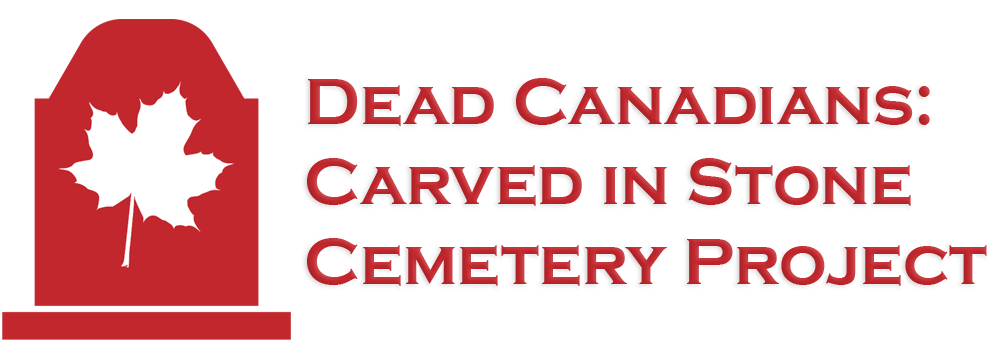
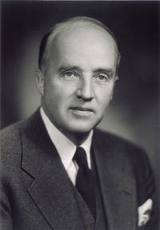
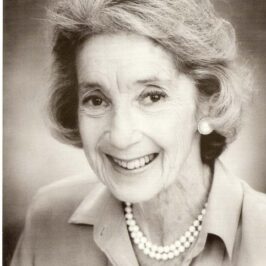
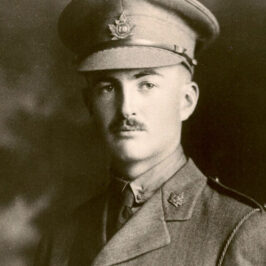

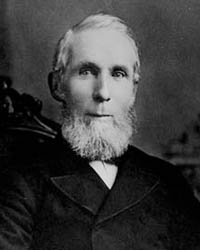
Leave a Reply